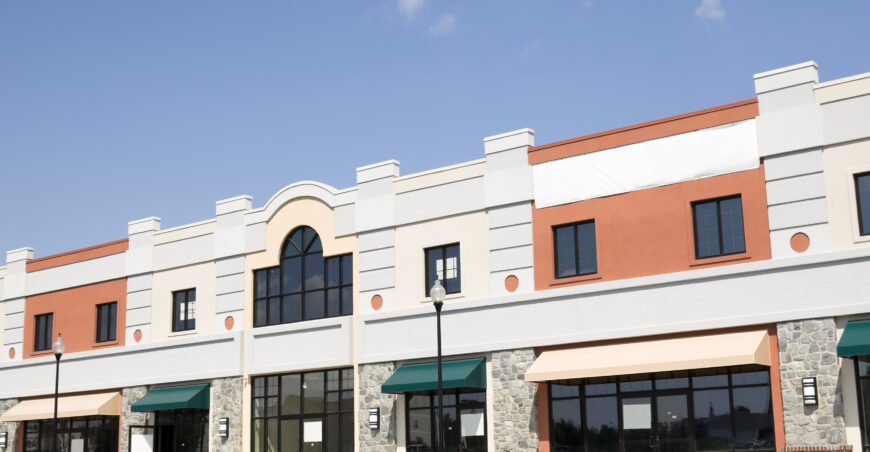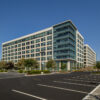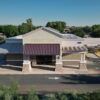As we enter the new year, the economy is facing significant challenges, including inflation near 40-year highs and the Federal Reserve’s expected continuation of interest rate hikes. These conditions are shaping the commercial real estate landscape in 2023 and beyond.
In this post, we’ll examine the latest developments in the commercial real estate industry and identify hot trends to look out for in 2023. Specifically, we’ll explore whether the retail real estate sector is poised for a bounce back in the upcoming year and what factors are driving the sector’s performance.
Overall Economic Trends to consider for 2023
It can be difficult to get a grasp of trends in times of economic uncertainty, but here are a few constants that many experts expect to see in 2023:
- Tighter monetary policies may slow GDP growth. The war in Ukraine alone has resulted in countless trade sanctions and supply chain issues, which have driven up energy prices.
- All global markets will be forced to adapt to inflation. Although it should be noticed inflation has actually notched down in recent months (6.45% compared to 7.48% last year).
- Less expected overall lending activity.
- Asset pricing expected to have volatile near future.
Additionally, the Fed anticipates multiple rate increases in 2023 to keep the federal funds range at around 4.0% – another factor that may lead to a minor recession next year. However, the characteristics shown by this market may also unveil a few overextended building owners, encouraging investors to remain liquid incase opportunity presents itself.
A Promising Retail Real Estate Market Outlook
Retail success has always been dependent on location and retail category. The performance of the retail real estate market varies greatly depending on the type of retail property and the location. However, the retail real estate sector as a whole is showing promise for the upcoming year, with several trends indicating that the industry is poised for growth.
Neighborhood shopping centers in well-populated residential areas will continue to perform well. These centers offer a mix of retailers and service providers, providing convenience for local residents. As people return to their normal routines after the pandemic, the demand for nearby shopping centers will increase.
Many cities are redeveloping B and C class spaces entirely. Old small-scale shopping malls are being revamped and utilized as apartments, restaurants, movies theaters, and more. These spaces will cater to both local residents and visitors, providing a unique and in-demand experience post-pandemic.
Urban retail real estate tends to boast higher rent levels than other retail spaces. This is due to the high population density in urban areas and the higher cost of real estate. As more people move into cities, the demand for urban retail will increase, driving up rent levels.
Upcoming Retail Expansion
Leading retailers, such as 7-Eleven Inc. and Dollar Tree, have aggressive expansion plans. 7-Eleven Inc. plans to open 6,000 stores by 2025, while Dollar Tree plans to open more than 5,000 stores by the same year. Other brands planning to expand on the retail front include Starbucks, Bank of America, Texas Roadhouse, and Home Depot. The variety of store-types planning to expand shows strength for the retail sector, indicating that there is demand for a variety of retail offerings.
Despite the aggressive retail rollout plans of many leading companies, all will likely face tighter vacancies than in years past. The national vacancy rate for neighborhood and community shopping centers remains at just over 10%. While this is still a relatively high vacancy rate, it is an improvement from previous years.
Recent reports found neighborhood and community shopping center net absorption was up 44% in Q4 2022, as compared to 2021. This indicates that demand for retail real estate space is increasing, with more tenants leasing space in shopping centers.
Phoenix Commercial Real Estate Forecast 2023
Have you been wondering if there are any commercial real estate opportunities or trends taking place a little closer to home? Phoenix has become one of commercial real estate’s most attractive markets.
The city’s population has been steadily increasing year over year, and currently stands at 4.6 million, making it one of the largest metropolitan areas in the United States. This growth doesn’t just showcase an increase in population, but also boosted economic development.
Phoenix has seen impressive job growth, increased consumer spending, and a wide array of investment opportunities. The city’s population growth has been nothing short of remarkable, as it experienced the largest absolute increase in population growth between 2010 and 2020, according to the New York Times. The city also boasted the fastest population growth rate among the country’s biggest cities.
Apart from its population growth, Phoenix has other advantages too. It is a great place to do business, as it has limited government interference and low corporate taxes. This combination has drawn retail companies from across the world to Phoenix.
The city’s pro-business policies and favorable tax environment have made it an attractive location for retail companies to set up shop. Many global retailers have already established a presence in Phoenix, including Walmart, Target, and Amazon. Phoenix also offers a favorable environment for startups and small businesses looking to establish a foothold in the retail industry.
The Retail Real Estate Market Outlook for Phoenix
A strong job economy matched by outstanding population growth has allowed Phoenix’s retail real estate sector to prosper in relation to many other cities. The city doesn’t just show speculative strength, it has strong fundamentals too.
- 4.6 million square feet in leasing volume absorbed within the last 12 months.
- Same store asking rents increased 7.1% in the last year, compared to the U.S. average increase of only 4.3%.
- Retail real estate development increased by 35% since 2021.
- Retail vacancy rate at 5.7%, continuing a steady decline post-pandemic.
In comparison to many other markets throughout the country, Phoenix’s retail space has shown surprising promise heading into 2023. The city’s appeal to a wide range of retailers, from large corporations to small businesses, has made it a prime location for retail companies to invest in. As the city continues to grow, the retail industry is likely to keep expanding, creating a bright future for the retail real estate sector in Phoenix.
Commercial Real Estate Opportunity in Phoenix
Experts plan on seeing further expansion within the retail real estate front of Phoenix. As we continue to battle uncertain economic times, the Phoenix market seems to hold strong. Are you looking to find out more information on the commercial real estate market in Phoenix? At ICRE Investing, we are well-versed within all commercial trends and opportunities happening within the greater Phoenix area. Feel free to reach out to us anytime for more information!
















